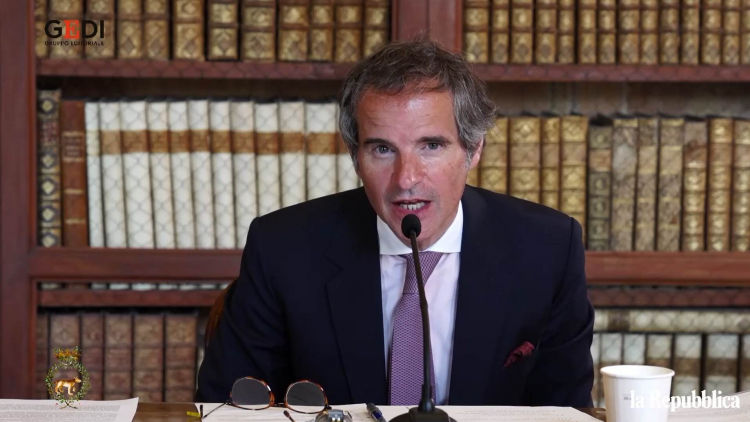IAEA member countries from all parts of the world are united by two wishes: the wish to live in peace and the wish to benefit from the many life-enhancing applications of nuclear science and technology, Director General Rafael Mariano Grossi explained to a virtual audience in Rome today. Speaking at the Accademia Nazionale Dei Lincei, he outlined the mission, scope and vision of the IAEA.
Founded over four hundred years ago, the Accademia is one of the oldest and most prestigious scientific institutions in Europe. Mr Grossi was invited by the Academy to deliver his lecture on Atoms for Peace and Development: Science and Technology for a Better and Safer World, as part of a special series featuring heads of intergovernmental organisations.
The IAEA is often called the nuclear watchdog for the work it does in verifying that states do not develop nuclear weapons. The IAEA, however, also facilitates scientific and technical progress and works to ensure that no community is left behind when it comes to benefiting from the safe, secure and peaceful uses of nuclear technology. In his address, Mr Grossi noted the numerous ways the IAEA supports countries with utilising peaceful applications of nuclear technology towards achieving 9 of the 17 United Nations Sustainable Development Goals.






